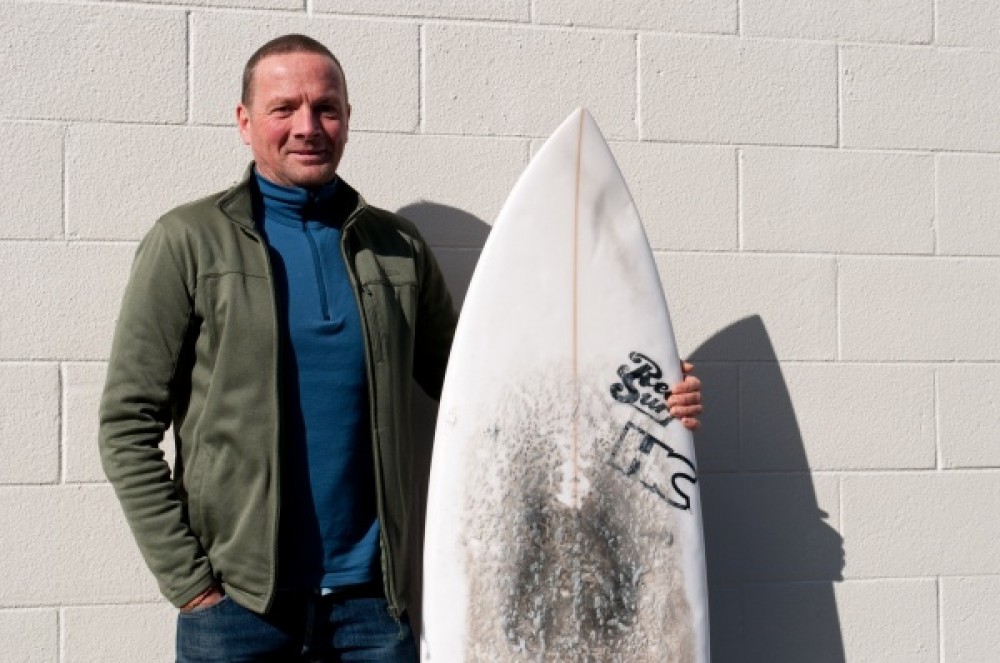Paul Jacobson believes one of the biggest challenges to staying mentally well is having realistic expectations. He says it's also important not to form your sense of self from external idealised models of success.

The Wellington counsellor advises people to make sure you allow some time out to “recalibrate” from your busy life.
“In the modern world we concentrate too much on what’s going on outside ourselves,” Paul says. “If we focus more internally and learn to be kind and less critical of ourselves, things are easier and clearer.”
As a young person, and even later in life, Paul’s had symptoms of mild anxiety and occasionally, mild depression.
“The anxiety has faded and when the depression knocks on the door, I investigate my feelings properly, and ask myself, ‘Where is this coming from?’ I feel a lot better.”
The disease of perfection
Paul believes our unrealistic expectations can create mentally unhealthy thinking. He wrote a poem about it called, “The disease of perfection.”
“Who told you you were perfect, fools with anxious minds trying to please, see how beautiful you are, just are, move on flawed and beautiful; leave the disease of perfection to those who told you what you had to be.”
One antidote Paul has found can improve mental wellbeing is surf counselling. Surf counselling is new to New Zealand, but practitioners believe the combination of exercise and talking through issues is doubly beneficial.
“The body and mind are not separable,” Paul explains. “By combining both these parts in surf counselling we are able to process feelings and ideas more quickly than traditional counselling.”
The process combines four of the Five Ways to Wellbeing: learning a new skill, connecting your body and mind, being active through the positive exercise, and taking notice of the sea, salt and the sun by staying in the moment.
“Surfing is a more relaxed base for the counselling process,” Paul says. “It helps create a stronger client/counsellor bond, heightens a client’s self-esteem and opens up new possibilities.”
Name your distress instead of hiding from it
Other ways Paul looks after his mental wellbeing includes regular walks in the hills and bush around Wellington, meditation, socialising with friends and taking time out on his own when he needs to.
“One interesting piece of advice I was given came from a colleague who said to always welcome and name whatever distress you have instead of hiding from it,” Paul says. “He said something like, “Come on in depression, come in and have a cup of tea”.
“In the modern world we concentrate too much on what’s going on outside ourselves,” Paul says. “If we focus more internally and learn to be kind and less critical of ourselves, things are easier and clearer.”
As a young person, and even later in life, Paul’s had symptoms of mild anxiety and occasionally, mild depression.
“The anxiety has faded and when the depression knocks on the door, I investigate my feelings properly, and ask myself, ‘Where is this coming from?’ I feel a lot better.”
The disease of perfection
Paul believes our unrealistic expectations can create mentally unhealthy thinking. He wrote a poem about it called, “The disease of perfection.”
“Who told you you were perfect, fools with anxious minds trying to please, see how beautiful you are, just are, move on flawed and beautiful; leave the disease of perfection to those who told you what you had to be.”
One antidote Paul has found can improve mental wellbeing is surf counselling. Surf counselling is new to New Zealand, but practitioners believe the combination of exercise and talking through issues is doubly beneficial.
“The body and mind are not separable,” Paul explains. “By combining both these parts in surf counselling we are able to process feelings and ideas more quickly than traditional counselling.”
The process combines four of the Five Ways to Wellbeing: learning a new skill, connecting your body and mind, being active through the positive exercise, and taking notice of the sea, salt and the sun by staying in the moment.
“Surfing is a more relaxed base for the counselling process,” Paul says. “It helps create a stronger client/counsellor bond, heightens a client’s self-esteem and opens up new possibilities.”
Name your distress instead of hiding from it
Other ways Paul looks after his mental wellbeing includes regular walks in the hills and bush around Wellington, meditation, socialising with friends and taking time out on his own when he needs to.
“One interesting piece of advice I was given came from a colleague who said to always welcome and name whatever distress you have instead of hiding from it,” Paul says. “He said something like, “Come on in depression, come in and have a cup of tea”.
“In the welcoming and naming, you then observe the emotion, and in watching the emotion, the form and intensity of it will always change. If the emotion is very strong do this observing in repeated brief sittings, not all at once, because if you try staying with intense discomfort your can create additional trauma.”
If you are supporting others in mental distress Paul thinks it is important to drop all judgement, imagine yourself in the same situation, and say you are 100% available.
“You also need to communicate everything you are thinking and the reasons for that to the person, know when you need to step back for a bit, and figure out at what point you need to involve others, including mental health professionals.”
